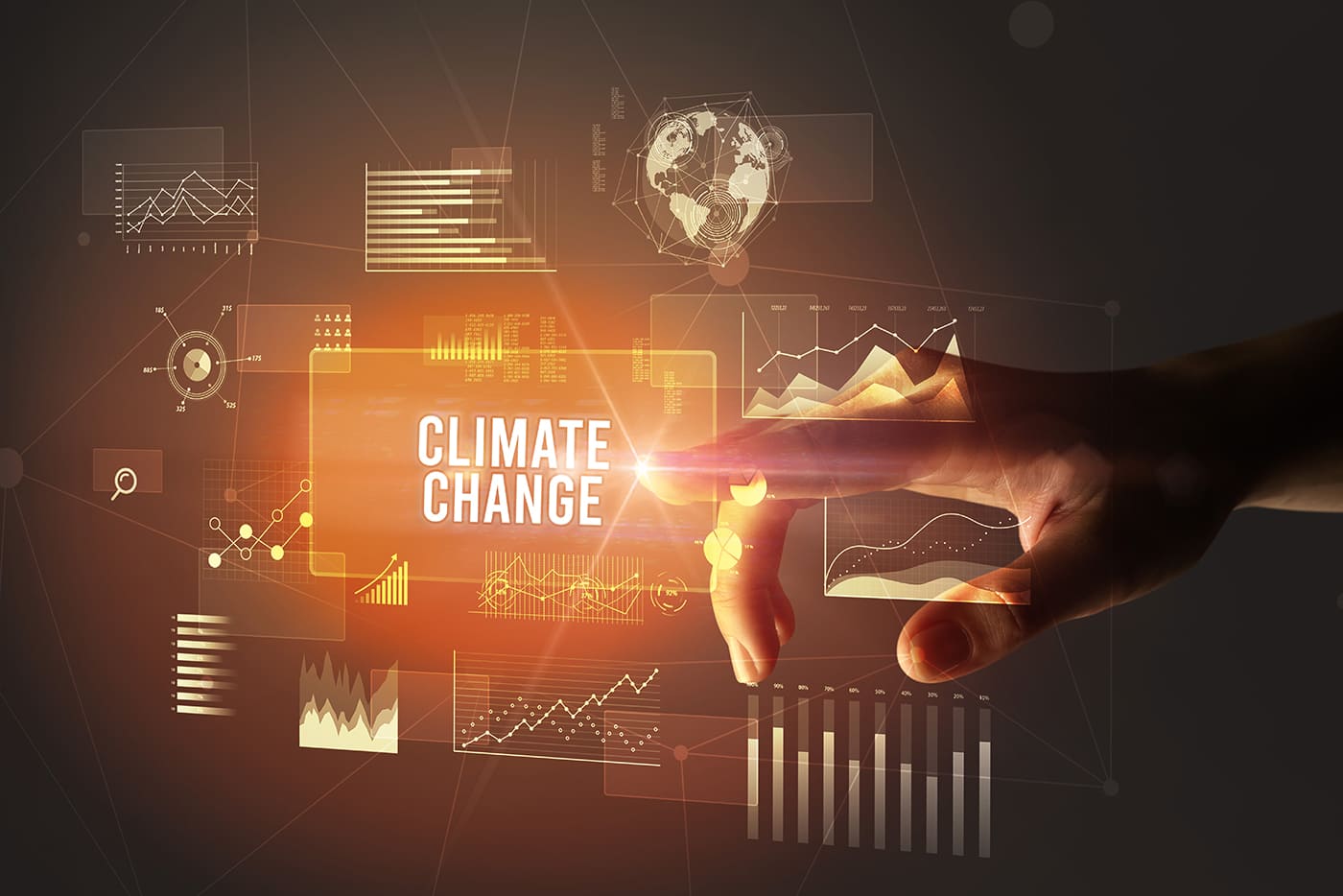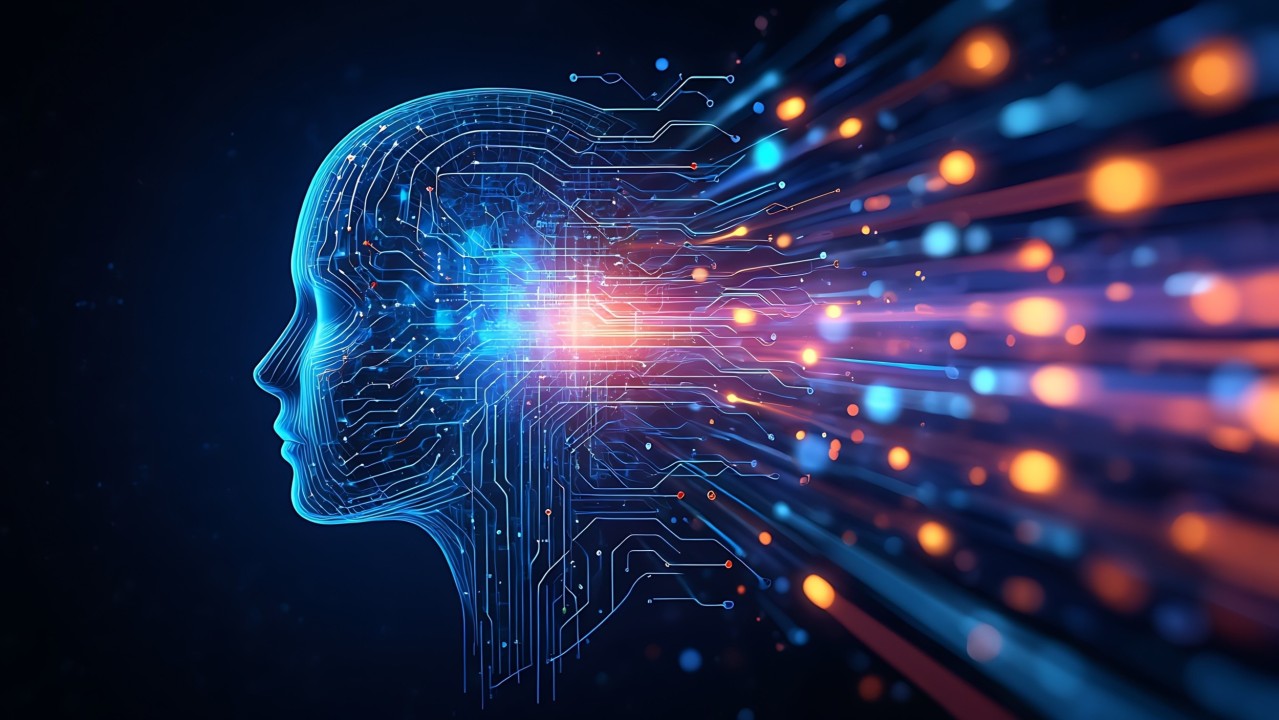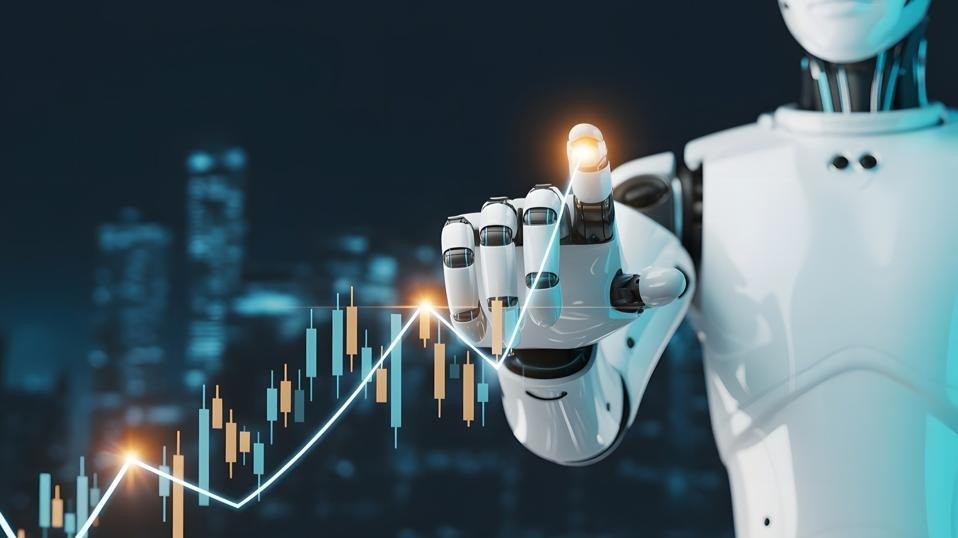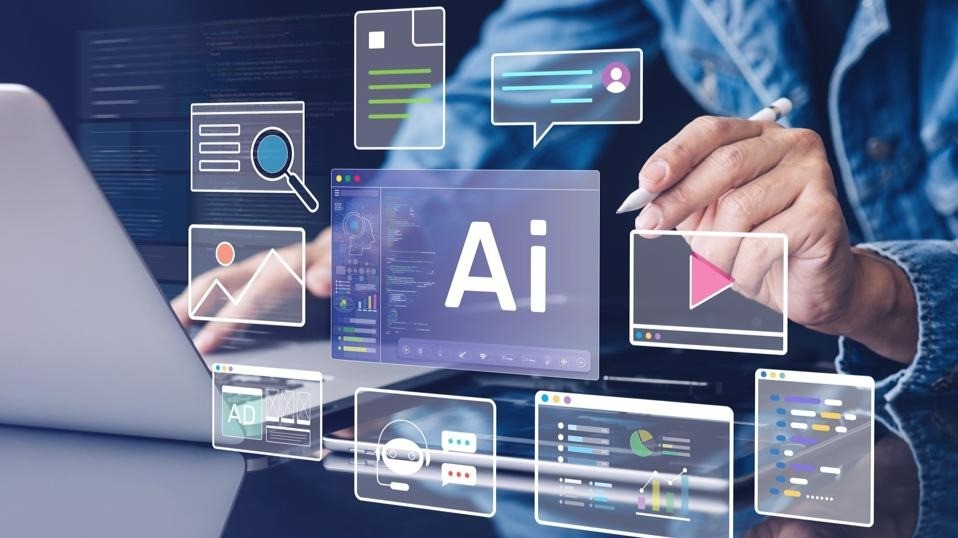How AI Is Helping Us Create A More Sustainable Future
30 May 2023
Climate change is an existential threat, but AI might be our secret weapon against its most destructive impacts. Read on to find out how AI is transforming our approach to renewable energy, carbon capture, policy development, and more.

As climate change continues to pose an enormous threat to our planet, we must explore innovative solutions that can help mitigate its impact. One of the most promising tools in our arsenal is artificial intelligence (AI), which has the potential to revolutionize our approach to addressing global challenges. Let’s take a look at some of the ways we can use AI to tackle worldwide challenges like climate change.
Climate Modelingx
Scientists and global warming experts use climate models to understand the complex interactions between various components of the earth's systems, so we can more accurately predict the potential impacts of climate change. AI enhances the accuracy and efficiency of these models by incorporating vast amounts of data and processing quickly and accurately. Machine learning algorithms can identify patterns in the data that may not be apparent to human researchers — and this helps refine predictions about future climate conditions and inform policy decisions.
Energy Efficiency
To make development more sustainable, we need to optimize our energy consumption and reduce waste. AI-driven smart grid management helps us do both. Smart grids use advanced sensing, communication, and control technologies to manage the generation, distribution, and consumption of electricity more efficiently. Smart grid management can analyze real-time data from various sources like sensors and smart meters to detect patterns and predict energy demands more accurately. This makes it possible to optimize the allocation of energy resources, so we can reduce waste and ensure that supply meets demand. Smart grids can also autonomously manage distributed energy resources, like solar panels and energy storage systems, to balance the grid and avoid potential overloads or blackouts.
Renewable Energy
Integrating renewable energy sources like wind and solar power is critical to curbing greenhouse gas emissions. AI can optimize the deployment and operation of these types of energy systems by analyzing weather patterns, forecasting energy generation, and maximizing output so we can ensure a stable energy supply.
Carbon Capture
Carbon capture, also known as carbon capture and storage (CCS), is a crucial strategy in the fight against climate change. CCS is a process that involves capturing carbon dioxide (CO2) emissions produced by industrial and energy-related sources before they are released into the atmosphere. The primary goal of carbon capture is minimizing the release of CO2, a major greenhouse gas that contributes to global warming. Scientists can use AI to optimize the design and operation of these carbon capture technologies so they are more efficient and cost-effective.
Disaster Prediction
Meteorologists and climate scientists are using AI to predict and mitigate the effects of climate-related natural disasters like hurricanes, floods, and wildfires. With AI, scientists can accurately analyze large amounts of data to identify trends that indicate the likelihood of impending disasters – then, they can develop and deploy early warning systems to minimize the loss of life and property from natural disasters.
Ecosystem Monitoring
One important part of tracking the impact of climate change is monitoring shifts in biodiversity and natural resources. We can use AI-powered tools to track ecosystems by processing large quantities of data from satellite imagery, drone footage, and other sources. Conservationists can also use machine learning algorithms to identify changes in land cover, species distribution, and other ecological indicators.
Climate Change Policy
Policymakers can use AI-generated models to identify the most effective strategies for reducing greenhouse gas emissions, promoting adaptation, and enhancing resilience. After policies have been in place, officials can also use AI to track their effectiveness, so governments can use resources as effectively as possible.
To find out more about how AI is playing a pivotal role in addressing global challenges like climate change, follow me on social media or check out my books, Future Skills: The 20 Skills and Competencies Everyone Needs to Succeed in a Digital World and Tech Trends in Practice: The 25 Technologies That Are Driving the 4th Industrial Revolution.
Related Articles
Why The AI Supercycle Will Fail Without Advanced Networks
By now, “smart” versions exist of just about every home appliance, gadget and gizmos we can think of. However, manufacturers continue[...]
The Two-Tier AI Economy: Why Half Of Companies Are Being Left Behind And How To Close The Gap
By now, “smart” versions exist of just about every home appliance, gadget and gizmos we can think of. However, manufacturers continue[...]
5 AI-Era Skills Mistakes That Will Cost Your Business Millions In 2026
By now, “smart” versions exist of just about every home appliance, gadget and gizmos we can think of. However, manufacturers continue[...]
5 ESG Trends That Will Shape Business in 2026
By now, “smart” versions exist of just about every home appliance, gadget and gizmos we can think of. However, manufacturers continue[...]
The 5 Robotics Trends In 2026 You Must Get Ready For Now
By now, “smart” versions exist of just about every home appliance, gadget and gizmos we can think of. However, manufacturers continue[...]
10 Generative AI Trends In 2026 That Will Transform Work And Life
By now, “smart” versions exist of just about every home appliance, gadget and gizmos we can think of. However, manufacturers continue[...]
Sign up to Stay in Touch!
Bernard Marr is a world-renowned futurist, influencer and thought leader in the fields of business and technology, with a passion for using technology for the good of humanity.
He is a best-selling author of over 20 books, writes a regular column for Forbes and advises and coaches many of the world’s best-known organisations.
He has a combined following of 4 million people across his social media channels and newsletters and was ranked by LinkedIn as one of the top 5 business influencers in the world.
Bernard’s latest book is ‘Generative AI in Practice’.










Social Media